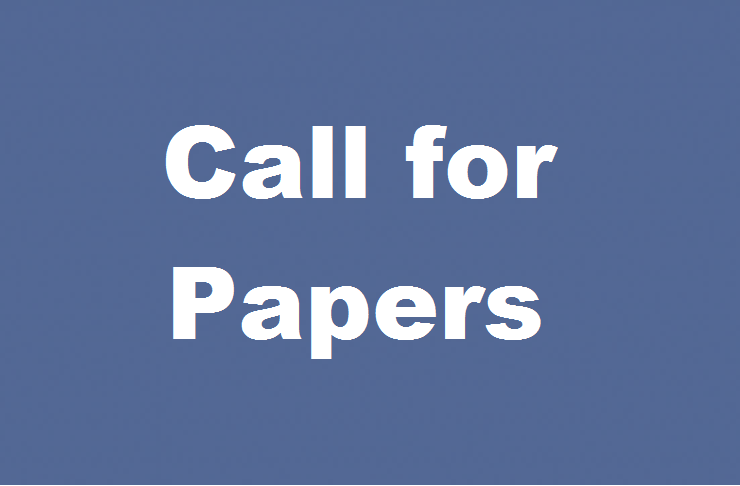NUALS’ 3rd International Seminar on Health, Human Rights and IPR Perspectives
An abstract shall be submitted for the selection of papers (Word limit: 250-500 words, Font: Times new Roman, Size 12, Line spaces: 1.5).
The abstract shall provide the scheme of the research paper. It must contain the synopsis of the paper, subtitles and
conclusion indicating the author’s perspectives. Abstract must be accompanied with Name, Designation, Official Address, Phone Number and Email Id of the author (s).
Research papers should apply research skills and must highlight the specific research problem.
The final paper must contain cover page with Name, Designation, E-mail ID, Contact number and address for communication. The papers must follow a uniform format:
Times New Roman, Font Size 12 1.5 line spacing
Word limit : 2500-7500, margin throughout (left/right/top/bottom)
Citation Mode – Bluebook 19th Edition (Mandatory), Bibliographies or references not necessary
Footnotes : Times New Roman, Font Size 10, Line Spacing 1
The work should be original, previously unpublished and must not be in the stage of submission/consideration elsewhere. All submissions should be made in MS Word format (.docx) in editable version ONLY.
Failure to comply with the above stipulations will result in the rejection of the paper.
One Co-author is permitted per paper. Co-author is also required to pay for all the charges as per the prescribed terms of participation. Presentation of papers can be done only by the author(s) of the paper. All submitted abstracts and final papers shall undergo an internal peer review process and the acceptance of the Abstract & Full Paper for the seminar will be communicated personally. The best papers shall be published in a publication, with due ISBN recognition. In all the matters relating to the acceptance of the abstracts and the research papers, the decision of the Organizers shall be final and conclusive.
All submissions shall be made online to hhi@nuals.ac.in
CORE THEMES OF THE SEMINAR
Access to Technology and Knowledge in the Human Rights Framework
Human rights aspects of access to Technology-Role of information
The Right to Development- Parameters of Actualization
Knowledge society- Information society- The Role of the Internet in Bridging Gaps.
Paradigm shift in the nature of access- Role of intercessors and intermediaries- Administration and management of transnational policies on access- Actions and Reaction.
Digital Literacy and barriers to Digital Literacy
The need for expansion of current legal systems – new threats to Human Rights
Right to Privacy
Recognizing Privacy as a Human Right – international legal framework – UDHR, ICCPR
Privacy as a Fundamental Right in India
Surveillance by the State – the conflict between national security and right to privacy
Big Data- Legal and Illegal Uses-Implications – Ethical, legal, Policy issues.
Data Mining by Corporations – Involvement of Human Rights
Data Protection v. Disclosure
The right to be forgotten
Human rights and Governance
E-Governance – national and international perspectives, examples
Social Networking websites -Role in Modern Democratic Process – Impact on formation and discussion of Democratic Opinions – Platform for Democratic Discourse- Democratic values and ICT
The new roles of a State- strategies of protection of rights – Constitutional protections- Scope of ICT as a tool for Governance and actualization of State obligations
Information as a Right- Access to information and Communications
Technology-means of facilitation to citizens-protection of such rights by state-effectiveness of such measures.
Paradigms on use of ICT-Measures to realize Human Rights and Role of ICT.
Public and Private Partnerships-Authorities- Incident Response systems
Privatisation- Monopolising access to information and communications technology- Competition- Measures to level playing field- Statutory and Judicial tenets
E-Learning and Educational Technologies.
Technology and environment
The interconnection- technology to protect environment
Technology that harms environment- Electronic waste
Technologies and its impact on the biodiversity
Green Information and communication Technologies- Climate change and monitoring devices
Access to technologies for environmental sustainability- Transfer of
Technology- Differentiated Responsibility-Communication and Access to Information Technologies
Digital Divide; The dual consequence of technology as an agent of oppression and upliftment
Digital Literacy, the barriers for a multilingual internet.
Connectivity in India, with particular reference to rural areas.
Issues of Digital Convergence & interoperability
The Possibilities of Open and Cloud Computing.
The politics of information. Challenges in the access to Information and Communication technologies.
Social Networking and fragmentation of the Internet.
Intellectual Property Rights in the Digital Age
Proprietary data, knowledge and information- the interrelationship between private and public domains- role of State
Barriers to Access to Technology, as a result of IPR regimes, the control of information in the internet.
Piracy, protection of Copyrights and IPR in the Internet, the ethics of Piracy
The Future of IPR in the future, with special reference to Internet of things and Artificial Intelligence
Communication protocols- international and national regimes of protection
Disclosure-Commercialising knowledge – differences between traditional and modern national perceptions- Legal precepts
Undisclosed information- Test Data- Data Protection -Data
Exclusivity –Intellectual Property – International scope of protection
Creative Commons and commercial realities
Economy for digital innovation- E-commerce, open markets
Biomedical Research and Scientific Collaborations using core technologies- Intermediary beneficiaries– Protection of IPR
Technology & HealthRight to medical Information- Information sharing and connectivity – Issues
of Disclosure
Assistive Digital Medical Technology- Cognitive Technologies – identification of legal parameters
Health Information Management- Medical Record Keeping – Electronic Medical Records-electronic health records- Digital Imaging and Communications in Medical Sector
Disability and Medical Technology: Possibilities/ ICT for the differently abled-international obligations- role of technology in their realization.
KEY DATESLast date for submission of Abstract: 25.06.2017
Notification for acceptance of Abstract: 30.06.2017
Last date for submission of Full Paper: 31.07.2017
Notification of acceptance of Full paper: 10.08.2017
Last date for Registration: 31.08.2017
REGISTRATION FEES:
1. Academicians /Teachers/Research Scholars and OtherParticipants : 2500/- (Individual/Co-author)
2. Students : 500/- (Individual/Co-author)
CONTACT DETAILS:
Ms. Namitha K.L, Director (i/c), Centre for Human Rights, Ph. 9446450090
Dr.Liji Samuel, Director (i/c), Centre for Health Law and Policy, Ph. 9497195387
Dr.Athira P.S , Director (i/c), Centre for IPR , Ph. 9995230047
NUALS Campus, H.M.T. Colony P.O.
Kalamassery, Ernakulam, PIN – 683 503
 513
513

